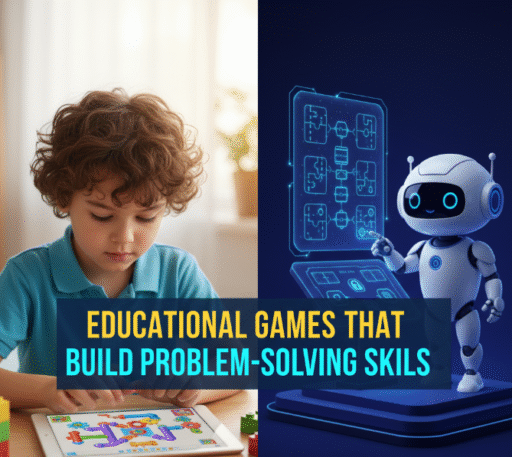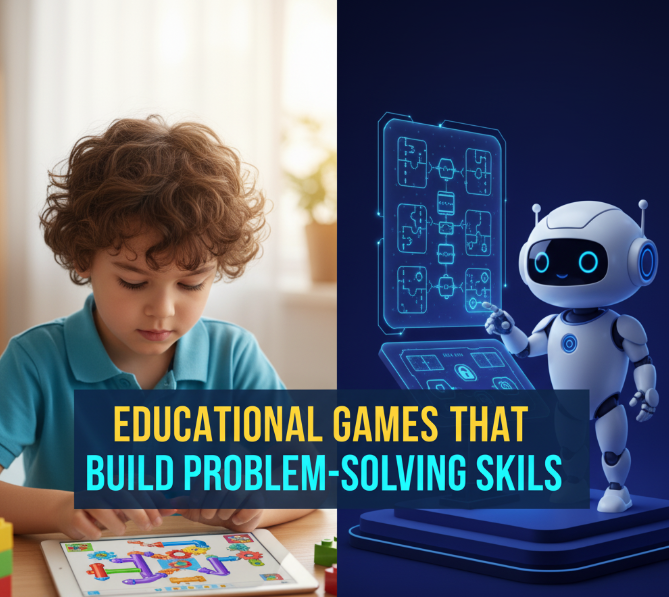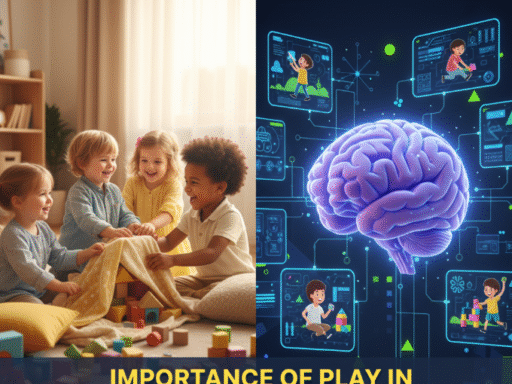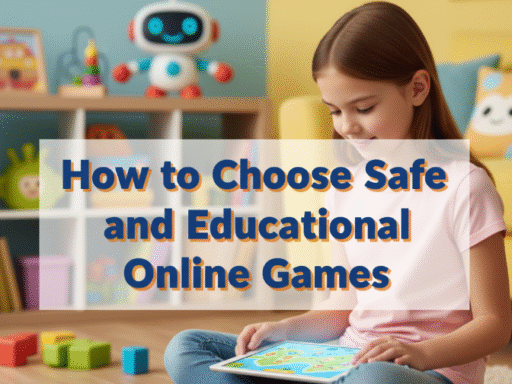Introduction: Why Kids Need Problem-Solving Games
Problem-solving is more than just figuring out puzzles—it’s a life skill. From handling challenges in school to making smart choices in daily life, children need to develop strong problem-solving abilities. Educational games offer a fun and interactive way to build these skills without kids even realizing they’re learning.
When children play these games, they learn how to:
-
Think critically and analyze situations
-
Break down complex problems into smaller steps
-
Test solutions and adapt when things don’t work
-
Develop patience and persistence
In this article, we’ll explore the best educational games that help children become confident problem solvers. Whether you’re a parent, teacher, or caregiver, you’ll find plenty of ideas here that can be used at home or in classrooms.
Benefits of Problem-Solving Through Games
Before diving into the list of games, let’s see why educational games are such powerful tools for learning.
1. Encourages Critical Thinking
Games challenge players to think strategically, weigh options, and anticipate outcomes.
2. Boosts Creativity
Many problem-solving games push kids to use imagination and “think outside the box.”
3. Strengthens Decision-Making
Every move in a game is a decision—children learn to analyze consequences before acting.
4. Builds Teamwork and Communication
Multiplayer games encourage kids to collaborate and share strategies.
5. Increases Confidence
Winning after solving a tough challenge gives kids a sense of accomplishment.
Top Educational Games That Build Problem-Solving Skills
Below is a collection of board games, digital games, and hands-on activities that make learning fun and effective.
Board Games for Problem-Solving
1. Chess
Chess has been called the “game of kings” for centuries, and for good reason—it builds sharp problem-solving skills.
-
Skills Learned: Strategic thinking, planning ahead, patience
-
Why It Works: Every piece has a unique movement pattern, so players must predict opponents’ moves and plan multiple steps ahead.
-
Age Group: 7+
2. Scrabble
Scrabble is more than just spelling words—it’s about smart strategy.
-
Skills Learned: Vocabulary, creative word formation, spatial problem-solving
-
Why It Works: Kids must place words in a way that maximizes points while blocking opponents.
-
Age Group: 8+
3. Rush Hour (Logic Puzzle)
This traffic jam game challenges kids to move cars and trucks around a grid to free the red car.
-
Skills Learned: Logical reasoning, sequencing, critical thinking
-
Why It Works: Children must identify patterns and carefully plan each move.
-
Age Group: 6+
4. Catan (Settlers of Catan)
A world-famous board game that teaches negotiation and planning.
-
Skills Learned: Resource management, strategy, collaboration
-
Why It Works: Kids learn to trade, adapt to changing conditions, and make smart resource decisions.
-
Age Group: 10+
Digital & Video Games for Problem-Solving
5. Minecraft: Education Edition
Minecraft is not just about building—it’s a digital playground for problem-solving.
-
Skills Learned: Creativity, teamwork, design thinking
-
Why It Works: Children create structures, solve challenges, and even code within the game.
-
Age Group: 7+
6. Portal 2
A puzzle-solving video game where players use a portal gun to move through tricky spaces.
-
Skills Learned: Spatial reasoning, logical thinking, experimentation
-
Why It Works: The game encourages trial and error, patience, and creative solutions.
-
Age Group: 10+
7. Lightbot (Coding Puzzle Game)
Lightbot teaches coding through puzzles where kids program a robot to light up tiles.
-
Skills Learned: Programming basics, sequencing, algorithmic thinking
-
Why It Works: Children learn step-by-step problem-solving similar to computer coding.
-
Age Group: 8+
8. Roblox (Educational Experiences)
Roblox allows kids to design their own games and solve puzzles created by others.
-
Skills Learned: Coding, game design, teamwork
-
Why It Works: Encourages kids to be creators rather than just players.
-
Age Group: 9+
Hands-On Problem-Solving Games
9. LEGO Education Kits
LEGO sets, especially the educational kits, turn creativity into engineering challenges.
-
Skills Learned: Engineering, design, innovation
-
Why It Works: Kids follow instructions or design their own models, solving real-world building problems.
-
Age Group: 5+
10. Escape Room Games (At Home Versions)
These kits replicate escape room challenges at home.
-
Skills Learned: Collaboration, critical thinking, time management
-
Why It Works: Kids solve riddles and puzzles under time pressure, just like real escape rooms.
-
Age Group: 9+
11. Tangram Puzzles
An ancient Chinese puzzle that uses 7 shapes to form different figures.
-
Skills Learned: Geometry, spatial reasoning, creative problem-solving
-
Why It Works: Children must rotate and arrange pieces to fit specific patterns.
-
Age Group: 6+
12. Jigsaw Puzzles
Classic, but still powerful for building patience and problem-solving.
-
Skills Learned: Visual recognition, patience, trial and error
-
Why It Works: Kids must recognize patterns and find how pieces fit together.
-
Age Group: All ages
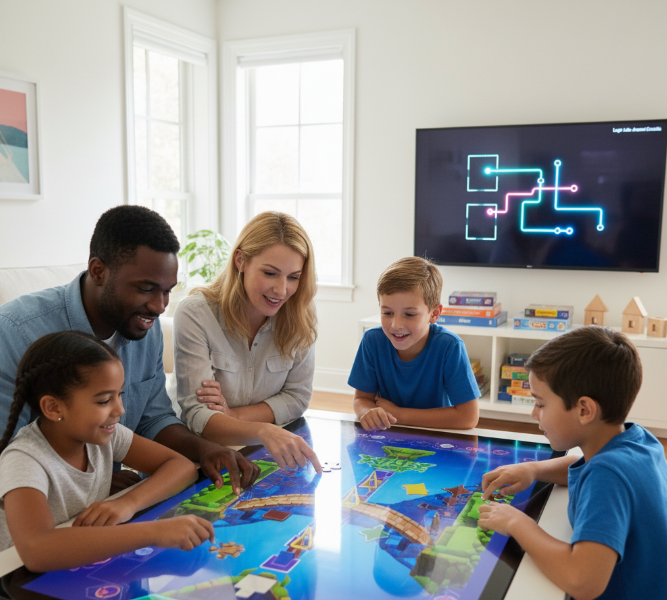
Educational Games That Build Problem-Solving Skills
Comparison Table of Problem-Solving Games
| Game/Activity | Type | Key Skills Built | Recommended Age |
|---|---|---|---|
| Chess | Board Game | Strategic thinking, planning | 7+ |
| Scrabble | Board Game | Vocabulary, word problem-solving | 8+ |
| Rush Hour | Puzzle Game | Logical reasoning, sequencing | 6+ |
| Catan | Board Game | Negotiation, resource management | 10+ |
| Minecraft Education | Digital Game | Creativity, teamwork, coding | 7+ |
| Portal 2 | Digital Game | Logical thinking, experimentation | 10+ |
| Lightbot | Coding Game | Algorithmic thinking, sequencing | 8+ |
| LEGO Kits | Hands-On | Engineering, innovation | 5+ |
| Escape Room Kits | Hands-On | Collaboration, critical thinking | 9+ |
| Tangram Puzzles | Puzzle | Geometry, spatial awareness | 6+ |
| Jigsaw Puzzles | Puzzle | Pattern recognition, patience | All ages |
How Parents and Teachers Can Use These Games Effectively
1. Mix Fun with Learning
-
Don’t label everything as a “lesson.” Let kids enjoy the play experience.
-
Add light challenges, like solving puzzles within a time frame.
2. Encourage Reflection
After playing, ask questions like:
-
“What was the hardest part?”
-
“How did you figure it out?”
-
“What would you do differently next time?”
3. Use Games as Rewards
Instead of screen-time rewards, make problem-solving games the fun activity.
4. Group Activities in Classrooms
Teachers can use team-based games like Escape Rooms or Catan for cooperative learning.
5. Track Growth
Parents and teachers can keep a simple chart of progress:
| Week | Game Played | Skill Focused | Progress Seen |
|---|---|---|---|
| 1 | Chess | Planning ahead | Improved patience |
| 2 | Lightbot | Coding logic | Completed 10 puzzles |
| 3 | LEGO Building | Creativity & design | Built complex model |
Tips for Choosing the Right Game for Your Child
-
Match Age Level – Don’t give very complex games to younger children.
-
Balance Challenge and Fun – A game should be challenging enough to think, but not frustrating.
-
Include Variety – Mix board games, digital games, and puzzles to cover different skills.
-
Encourage Social Play – Multiplayer games build teamwork and communication.
-
Look for Long-Term Value – Games like Chess or LEGO kits grow with your child’s skill level.
Real-Life Problem-Solving Through Games
-
A child who plays Chess learns to predict outcomes, a skill useful in exam preparation.
-
Kids who play Minecraft often build teamwork skills, which help in school group projects.
-
Escape Room challenges teach time management—similar to managing homework deadlines.
Conclusion: Turning Play Into Powerful Learning
Problem-solving is one of the most important skills a child can develop, and games are the perfect training ground. Whether it’s a board game like Chess, a digital puzzle like Lightbot, or hands-on creativity with LEGO kits, these activities prepare children for real-life challenges.
By introducing educational games that build problem-solving skills, parents and teachers give children tools they’ll carry throughout life—tools that help them think smarter, stay creative, and face obstacles with confidence.
